The Atacama desert stretches for 600 miles from the north Chilean coast into southern Peru and eastwards from the Pacific up into the Andes mountains.
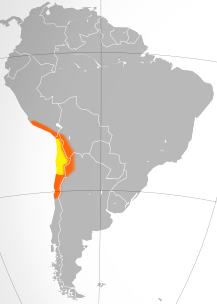
El desierto de Atacama
This is where Paula and I have recently been travelling in search of wildlife, though it’s hard to find!
A few main roads cross the desert as mining is a major industry in the region.
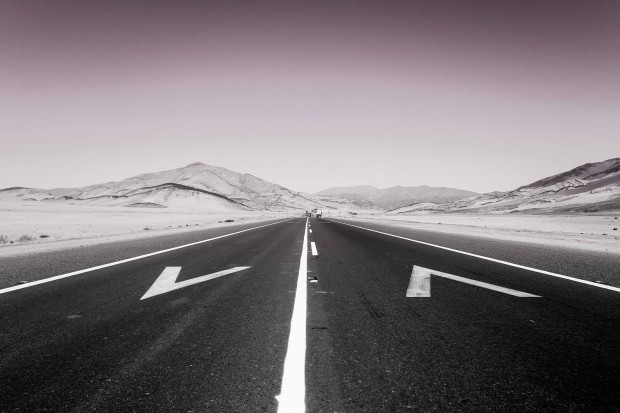
Una carretera por el desierto
When we left the main roads we were stunned by the emptiness and the vast, parched, barren landscapes.
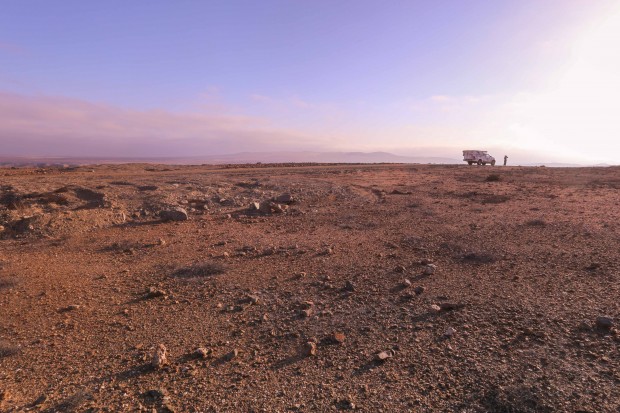
The Atacama desert is the driest place on earth. Most parts of the desert only receive between 1 and 3 mm of rain a year and scientists have concluded that some areas have experienced extreme aridity for 3 million years with some river beds being dry for 120,000 years !
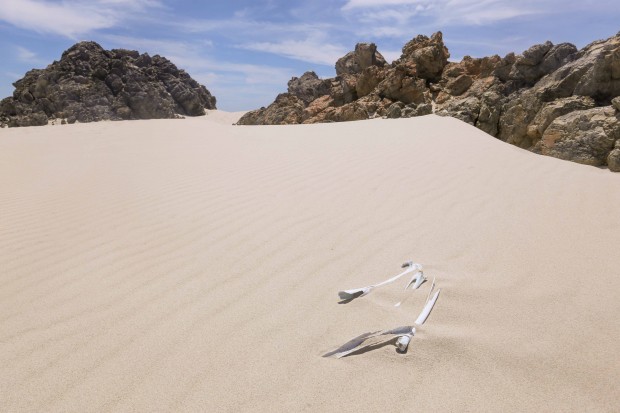
Un paisaje de arena y rocas
Colours are bold and saturated, lines are clear, everything looks clean, nothing is cluttered and yet unnatural in a peculiar way.
The senses are not bombarded by noise, the silence accentuating the sharpness and intensity of the desert and this is what makes the Atacama so beautiful and other worldly.
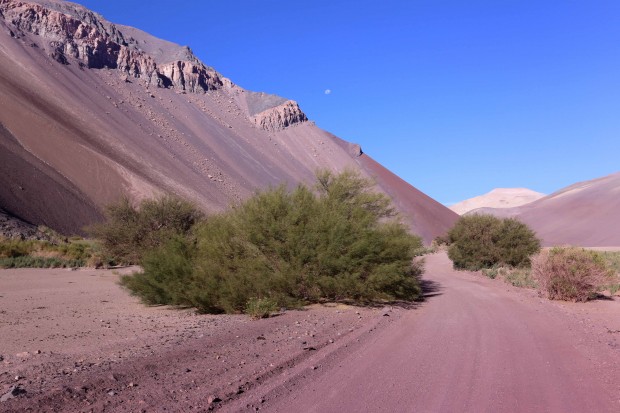
This is not only a land of stone, rock, sand, salt lakes and lava. It is an explosive and turbulent land as the underlying volcanic activity sends steaming water to the surface, bubbling through boiling mud.
Primitive bacterial organisms have been found in these cauldrons of steam and slime.
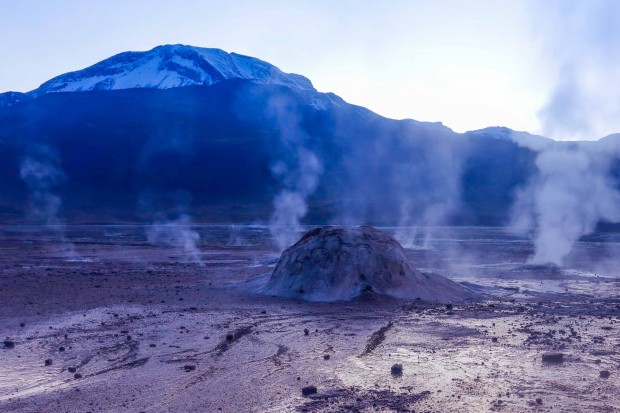
Los geiseres en El Tatio
It is not surprising that NASA scientists use this desert as a testing ground for their explorations on Mars. Nowhere on earth looks more like Mars than the Atacama, nowhere on earth is there less life than in parts of the Atacama.
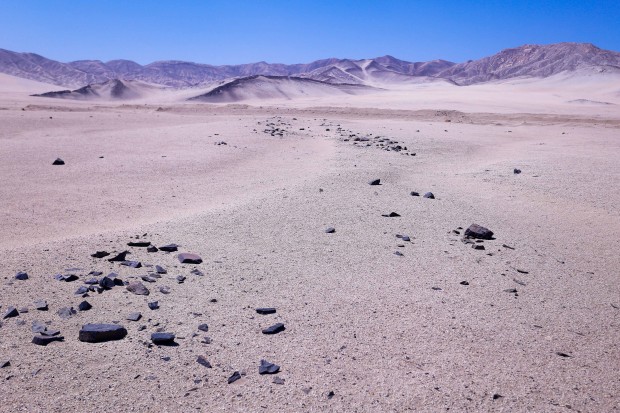
Unos lugares se parecen al planeta Marte
It might seem crazy that we would visit such a desolate and unforgiving environment in search of wildlife. But, as always, nature finds ways to overcome the seemingly impossible and has conquered even this hostile place.
Such were the secrets we uncovered and the animals we found that the next two blogs will be devoted to the extraordinary wildlife of the Atacama; the driest place on earth !







